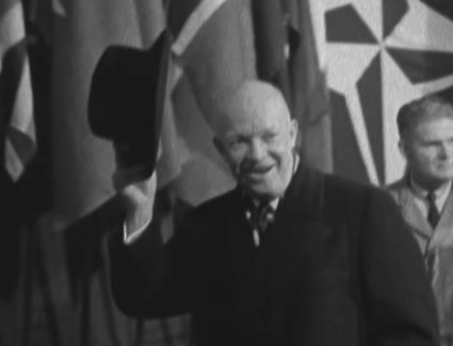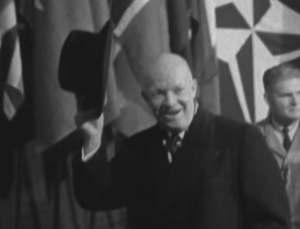
More Than a Doctrine
After the Suez Crisis of 1956, President Dwight D. Eisenhower addressed Congress with a strong declaration: The United States will distribute economic and military aid, and, if necessary, use force, to stop communism from spreading throughout the world.” This became known as Eisenhower Doctrine which assured US aid for any nation threatened by communism within the Middle East region.
This doctrine marked a dramatic shift in American policy toward the region, signaling its acceptance of its position as the dominant outside power and creating long-term regional engagements that would span into the following decade.
Eisenhower’s policy was controversial. He failed to gain support from Arab governments or Israel for it and historians believe that its implementation underestimated Arab nationalism espoused by Egyptian President Gamal Abdul Nasser. Most notable was its use during Lebanon Crisis 1958 when Eisenhower sent US troops into Lebanon as a preventative measure against any revolution which may be led by elements supporting Syria or Soviet Russia.









